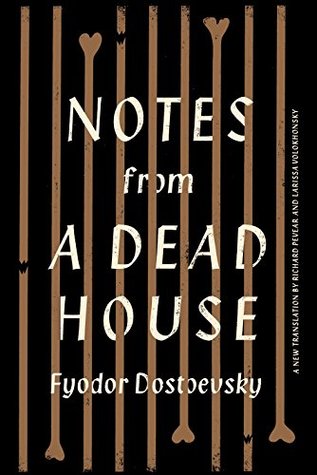More on this book
Community
Kindle Notes & Highlights
Read between
January 26 - February 4, 2024
a man does not renounce so quickly what has entered his blood, what was passed on to him, so to speak, with his mother’s milk. Such precocious revolutions do not happen. To acknowledge one’s guilt and ancestral sin is little, very little; it is necessary to break with them completely. And that cannot be done so quickly.
I have known people who were even good, even honest, even respected in society, and yet, for example, they could not take it calmly if a man who was being punished did not cry out under the lashes, did not plead and beg for mercy. Punished men must unfailingly cry out and plead for mercy. That’s how it’s done; it’s considered both proper and necessary, and once, when the victim did not want to cry out, the officer, whom I knew, and who might have been considered a kind man in other respects, even became personally offended. At first he was going to punish the man lightly, but, not hearing the
...more
There are inveterate tramps. Some run away even after they have finished their term in prison and have already settled. It would seem they should be pleased to be settled and secure, but no! they’re drawn somewhere, they’re called away somewhere. Life in the forest, a life poor and terrible, but free and full of adventures, has something tempting about it, a sort of mysterious enchantment for those who have once experienced it, and—lo and behold—the man runs away, even a modest, conscientious man, who has promised to become a good, sedentary man and a sensible householder. A man may even
...more
Here everyone was a dreamer, and that jumped into your eyes. You felt it painfully, precisely because this dreaminess lent the majority of the prisoners a gloomy and dismal, somehow unhealthy look. The great majority were silent and spiteful to the point of hatred, and did not like to openly display their hopes. Simple-heartedness and candor were held in contempt. The more unrealizable the hopes were, and the more the dreamer himself felt that unrealizability, the more stubbornly and chastely he concealed them within himself, but renounce them he could not. Who knows, maybe some were secretly
...more
No living man lives without some sort of goal and a striving towards it. Having lost both goal and hope, a man often turns into a monster from anguish …
“Tell me, Petrov,” I asked him, “aren’t your people angry with us?” “Who’s angry?” he asked, as if coming to his senses. “The prisoners, with us … with the noblemen?” “Why should they be?” “Well, because we didn’t come out for the grievance.” “And why should you present a grievance?” he asked, as if trying to understand me. “You eat your own food.” “Ah, my God! But some of yours eat their own food, and they still came out. We should have, too … out of comradeship.” “But … but what kind of comrade are you for us?” he asked in perplexity. I glanced at him quickly: he decidedly did not understand
...more
I was trying to sort all our people into categories, but now, as I recall Akim Akimych, I think one more category can be added. True, it was made up of him alone. It is the category of the totally indifferent convicts. The totally indifferent, that is, those to whom it was all the same whether they lived in freedom or in prison, naturally did not and could not exist among us, but Akim Akimych seems to have made the exception. He even set himself up in prison as if he intended to live there all his life: everything around him, starting with his mattress, pillows, utensils, was arranged so
...more
He was a deeply mistrustful and embittered man, but was able to control himself astonishingly well. It was this all too great ability that I disliked in him: you somehow felt that he would never open his whole soul to anyone.
He looked spitefully at the prisoners. But all his fascination went away as soon as he took off his uniform. In uniform he was a terror, a god. In a frock coat he suddenly became a complete nothing and smacked of the lackey. It’s astonishing how much a uniform does for these people.
Kulikov behaved as always, that is, gravely, decently, and, on coming back to the prison after his punishment, looked as if he had never left. But that was not how the prisoners looked at him: though Kulikov had always and everywhere known how to stand up for himself, in their hearts the prisoners somehow ceased to respect him, began to treat him somehow more familiarly. In short, after this escape Kulikov’s glory faded considerably. Success means so much to people …


